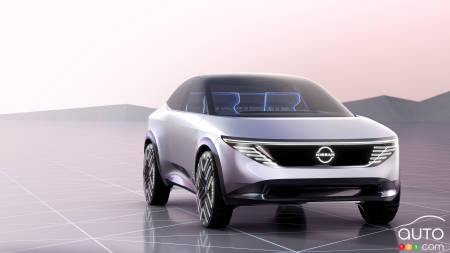In line with what we’re seeing elsewhere in the automotive industry, Nissan is revising its electrification plans, with the goal of better aligning with the realities of the market(s).
Notably, Nissan has altered the schedule for new EVs destined to be produced at its Canton, Missouri plant. Automotive News reports that the automaker has sent a memo to suppliers involved in electrified model production asking them to “cease all development activities related to electric sedans” until further notice. The company wants to reassess how best to attack the next few years.
Originally, Nissan planned to launch production of an electric sedan in 2025, followed by an Infiniti variant. These two vehicles were to be among seven new electric models planned for the North American market by 2026.
Last July, Nissan pushed back the timetable to June 2026, and then again to November 2026. The new postponement also pushes back a promised $500 million investment inside the plant. Once it has benefited from this investment, the plant will become Nissan's hub for EV production in the U.S.

At present, the Canton plant manufactures three vehicles, the Altima sedan and the Frontier and Titan pickup trucks. Its assembly capacity is 410,000 units per year. Nissan forecasts that, for the current fiscal year ending March 2025, Canton workers will assemble around 210,000 models, partly because production of the Titan will end this summer.
If all goes according to plan for Nissan, the company will start assembling its electric sedan in November 2026, with the Infiniti variant to follow in April 2027.
The flip side of this postponement of electric sedan production is that Nissan wants to move forward production of electric SUVs. In fact, two or three SUVs will be offered sooner than originally planned (though the timetable is to be confirmed). Originally, the two SUVs were not due to hit the market until 2028.
The plan also calls for a fifth model to be added to the two SUVs and two sedans already planned. That would be a third electric SUV, in the format of the now-defunct Qashqai. With its new electric range, Nissan wants models that can share components and reduce manufacturing costs.
A Nissan spokesman told Reuters: “We are adjusting the timing of the introduction of these five new models to ensure that we bring the vehicles to market at the right time.”
The adjustments to plans and scheduling are to be expected. While sales of electric models continue to grow, the rate of growth has dropped more than expected, so targets need to be revised. Data from Cox Automotive shows a 2.6-percent increase in sales of EVs in the first quarter of this year, compared with a 46 percent jump in the same period in 2023.






